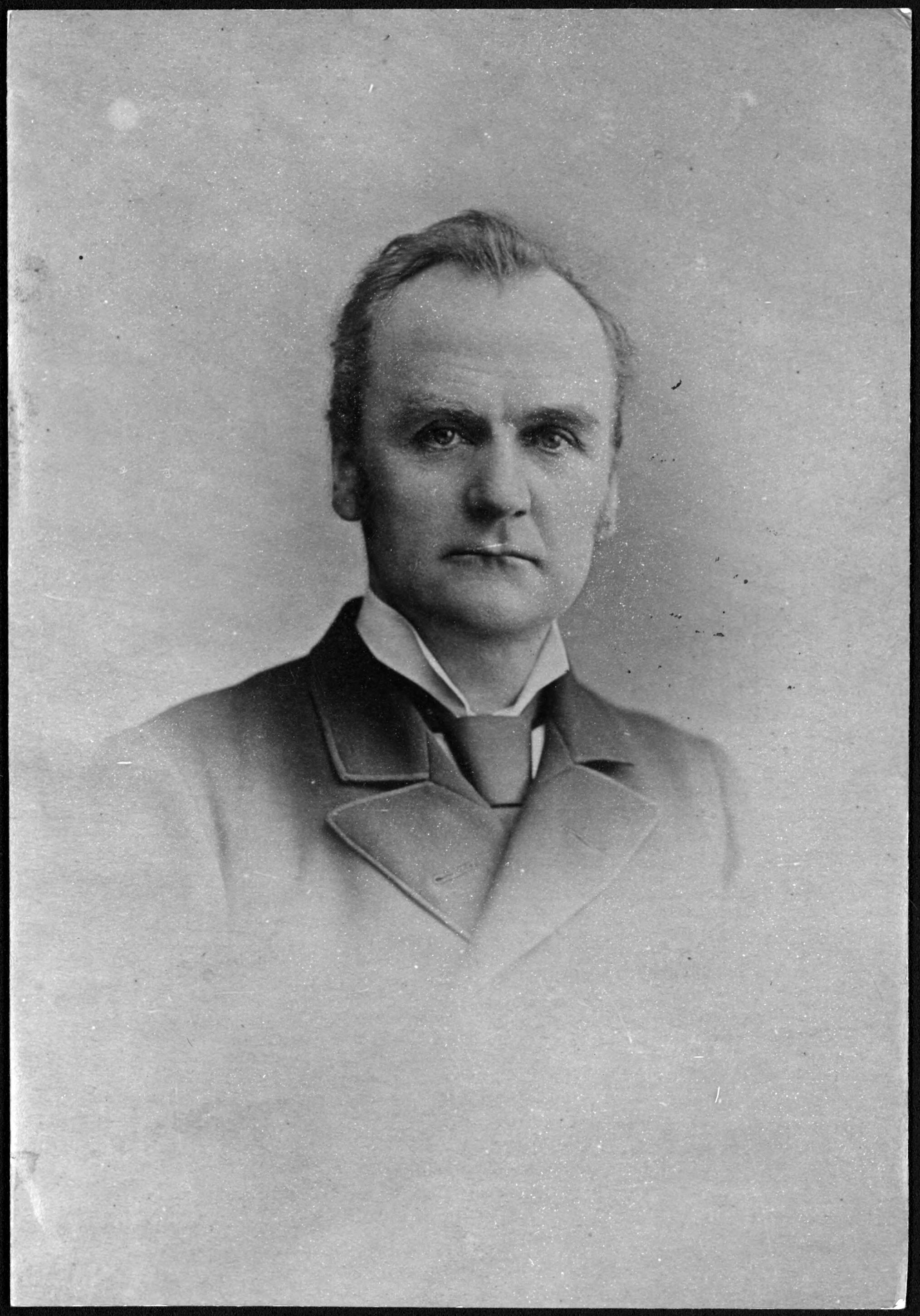|
Normand MacLaurin
Sir Henry Normand MacLaurin, (known as Normand MacLaurin; 10 December 1835 in Kilconquhar, Scotland – 24 August 1914 in Sydney, Australia), was a Scottish-born physician, company director, Australian politician and university administrator. Biography MacLaurin was born in Kilconquhar, Fife, Scotland, the son of James MacLaurin, M.A. schoolmaster and Catherine, née Brearcliffe. He was educated at home. At 15 years of age he won a bursary at the University of St Andrews and took the degree of M.A., graduating in 1854 at 19 years of age. Both parents died before he was 19. With help from his only brother, Rev. James MacLaurin, and some fees he earned for tutoring, he enrolled in medicine at the University of Edinburgh. He qualified as M.D. in 1857 (aged 22) and subsequently served on eight different ships in the Royal Navy. In the course of his naval service, on 4 February 1868 he reached Port Phillip, and then Sydney in conjunction with the Royal Visit to Australia of Alfred ... [...More Info...] [...Related Items...] OR: [Wikipedia] [Google] [Baidu] |
Charles Mackellar
Sir Charles Kinnaird Mackellar (5 December 184414 July 1926) was an Australian politician and surgeon. He served in the New South Wales Legislative Council from 1885 to 1925, with the exception of a period of 50 days in 1903 when he filled a Casual vacancies in the Australian Parliament, casual vacancy in the Australian Senate, Senate. He was the father of the noted poet Dorothea Mackellar. Early life Mackellar was born in Sydney, the only son of Dr Frank Mackellar (a physician from Dundee, Scotland), and his wife Isabella, ''née'' Robertson (widow of William McGarvie). Charles was educated at Sydney Grammar School and then moved to Port Macquarie district. After leaving school had spent several years working on the land. About 1866 he studied at the University of Glasgow, graduated Bachelor of Medicine#Scotland, MB and Master of Surgery, Ch.M. in 1871. He then returned to Australia and registered with the Medical Board of New South Wales on 25 March 1872 and established a suc ... [...More Info...] [...Related Items...] OR: [Wikipedia] [Google] [Baidu] |
William Charles Windeyer
Sir William Charles Windeyer (29 September 1834 – 11 September 1897) was an Australian politician and judge. As a New South Wales politician he was responsible for the creation of Belmore Park (north of the new Central railway constructed in 1874 in Haymarket), Lang Park (in Church Hill, between York, Lang and Grosvenor Streets in the city), Observatory Park (on Flagstaff Hill in the west Rocks) and Cromwell Park at the head of Long Bay, Malabar and parks on Clark, Rodd, and Snapper Islands. He was also the author of the New South Wales Patents Act and the Married Women's Property Act of 1879. As a judge he was able, conscientious and hard-working, and had much knowledge of law. He had the misfortune to preside over two notorious cases, the Mount Rennie rape case and the Dean trials, which caused much popular feeling, and gave him the reputation in some quarters of being a "hanging" judge. His friends agreed that this estimate was far from his character, and that though he ... [...More Info...] [...Related Items...] OR: [Wikipedia] [Google] [Baidu] |
William Suttor Jr
William is a male given name of Germanic origin.Hanks, Hardcastle and Hodges, ''Oxford Dictionary of First Names'', Oxford University Press, 2nd edition, , p. 276. It became very popular in the English language after the Norman conquest of England in 1066,All Things William"Meaning & Origin of the Name"/ref> and remained so throughout the Middle Ages and into the modern era. It is sometimes abbreviated "Wm." Shortened familiar versions in English include Will, Wills, Willy, Willie, Bill, and Billy. A common Irish form is Liam. Scottish diminutives include Wull, Willie or Wullie (as in Oor Wullie or the play ''Douglas''). Female forms are Willa, Willemina, Wilma and Wilhelmina. Etymology William is related to the given name ''Wilhelm'' (cf. Proto-Germanic ᚹᛁᛚᛃᚨᚺᛖᛚᛗᚨᛉ, ''*Wiljahelmaz'' > German ''Wilhelm'' and Old Norse ᚢᛁᛚᛋᛅᚼᛅᛚᛘᛅᛋ, ''Vilhjálmr''). By regular sound changes, the native, inherited English form of the name should b ... [...More Info...] [...Related Items...] OR: [Wikipedia] [Google] [Baidu] |


